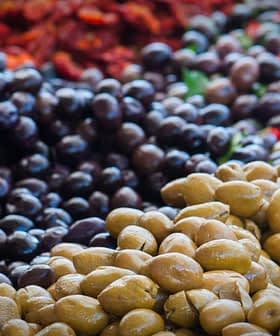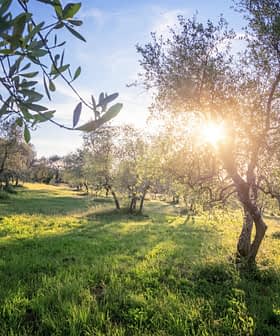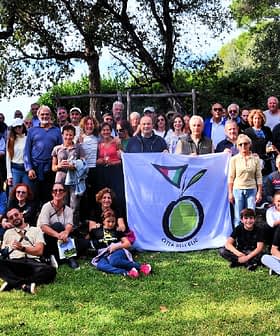 8.9K reads
8.9K readsHealth
Can Olive Oil Really Prevent a Hangover? An Expert Weighs In

A TikTok trend among Generation Z involves taking shots of olive oil before drinking alcohol to potentially reduce hangover effects, gaining popularity due to social media influence and claims by American record producer Benny Blanco. Despite claims that olive oil can prevent hangovers by coating the stomach, experts like Mary Flynn and Chris Rhodes maintain that the trend is not scientifically proven, as hangovers are caused by various factors related to alcohol consumption and cannot be completely cured by any single substance.
A recent TikTok trend has emerged among Generation Z, wherein individuals consume shots of olive oil before drinking alcohol, with the belief that this practice may mitigate the effects of hangovers.
Although the concept is not entirely novel, its popularity has surged recently, reflecting a confluence of social media influence and pseudoscientific claims.
The trend gained traction following assertions made by American record producer and songwriter Benny Blanco, who contended that the pre-drinking ritual of ingesting olive oil effectively prevents hangovers.
There is no harm in consuming olive oil, but no benefit for a hangover.
Blanco advocates for this method, claiming it renders one immune to the discomfort of a hangover the following day.
“My friend Nino taught me this,” Blanco told The Tonight Show host Jimmy Fallon. “These old guys from Italy came in. They said, ‘Before you drink, you take a shot of this, you can’t get hungover. Impossible.”
Blanco and Fallon drank two shots of olive oil before consuming a glass of red wine. Blanco’s claim has ignited discussions among internet users and garnered significant attention on social media platforms, particularly TikTok.
@ggduve worst shot ever? yes. did it work? yes. will i do it again? maybe. #hangovercure#oliveoilshots#pregame#jimmyfallon#bennyblanco♬ original sound — FallonTonight
In August, a TikTok user known as Itssjessc provided an update on her experience.
“It helped. I’m not going to say it’s going to fully cure you from a hangover if you drink a lot, but I’m a lightweight, and usually the next morning, regardless of how many drinks I have, I don’t feel very well,” Itssjessc wrote. “However, I feel fine right now. I feel much better.”
See Also:Spanish Social Media Users Unimpressed With Government’s Olive Oil Tax Cut“I confirm that,” wrote another TikTok user. “It is known in Greece too, a tablespoon of olive oil before you go out and no hangover.”
Social media users assert that “the olive oil coats the stomach and prevents gastric emptying, so it prevents alcohol from getting into the intestine.”
However, the Association of UK Dieticians has pointed out that there is “no such thing as lining your stomach.”
Mary Flynn, the founder of the Olive Oil Health Initiative of Brown University’s Miriam Hospital, told Olive Oil Times that the trend is “quite humorous” but has some truth.
“Alcohol, water and sodium are absorbed from the stomach; everything else is absorbed in the first part of the small intestines, the duodenum,” she said. “That is why if you have an ‘empty stomach’ (i.e., are hungry), you can feel the effects of alcohol quicker than if you have eaten.”
Flynn added that peptide, a gastric inhibitory peptide present in fat, slows the stomach emptying process. Additionally, fat is more difficult to absorb than proteins and carbohydrates, so it is released from the stomach more slowly.
“So fat will slow things leaving the stomach, but I could not think how it would affect alcohol leaving the stomach, and it certainly would not help with a hangover,” Flynn said.
Chris Rhodes, a medical doctor and nutrition expert, told The Focus that nothing can cure a hangover, and most home remedies attempt to ease the symptoms.
“The long and short of it is no, olive oil will not be able to prevent a hangover,” he said. “Hangovers are a multifaceted condition caused by the far-reaching negative effects of alcohol consumption that include problems from dehydration to inflammation, brain damage to liver function.”
Flynn added that the basic premise behind the claim is incorrect, pointing out that the stomach is full of hydrochloric acid, which breaks down food and liquid for digestion, so no single substance ‘coats’ the stomach.
“Your stomach is not empty like a plastic container, so oil would not ‘coat’ it,” she said. “It is possible that if someone drank a cup or so of any oil – other oils would do the same thing they are claiming for olive oil – that might slow alcohol absorption, but a big ‘might.’”
However, Flynn pointed out that fatty food consumed with alcohol may help to dilute it and possibly slow its absorption. “That is the idea behind serving cheese with alcohol,” she said.
“There is no harm in consuming olive oil, but no benefit for a hangover,” Flynn concluded.









